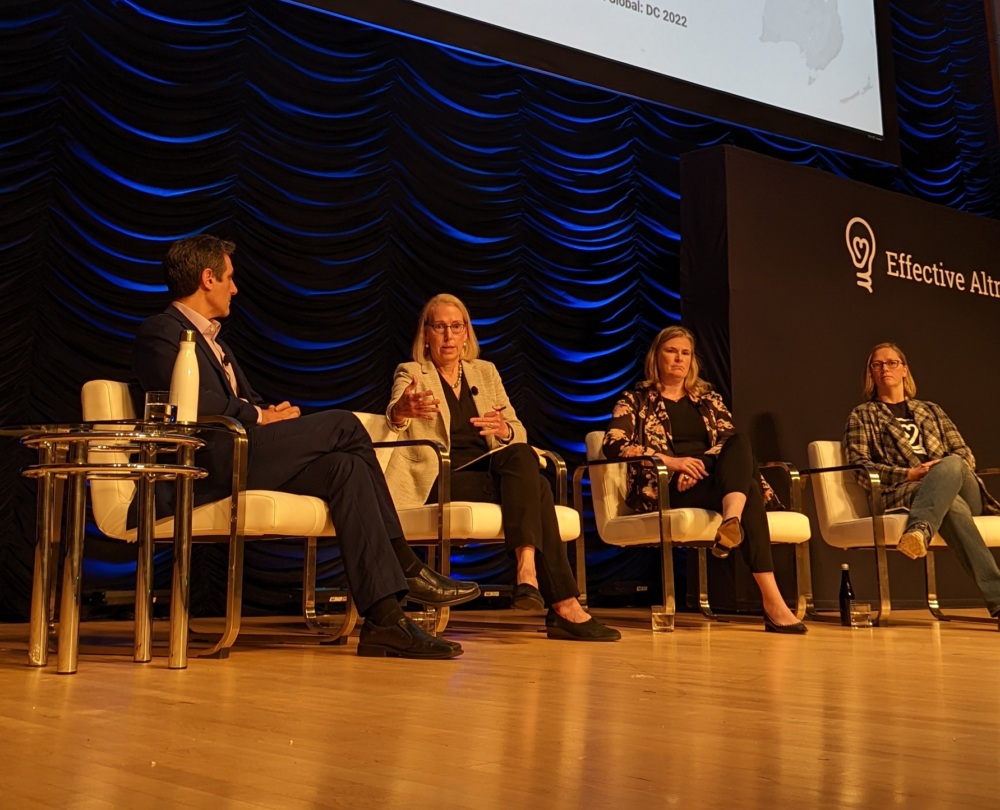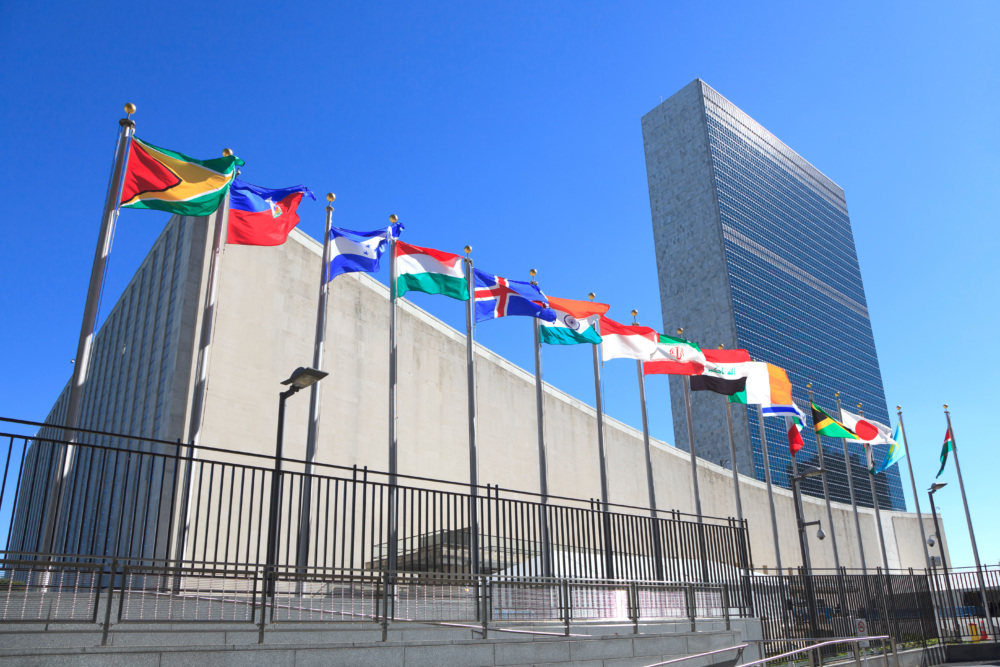
NTI experts discuss catastrophic risks imperiling humanity at Effective Altruism Global Conference
NTI's Joan Rohlfing and Jaime Yassif discussed how we can address catastrophic nuclear and biological threats imperiling humanity.
The Nuclear Threat Initiative is participating in the 2023 Munich Security Conference (MSC) where NTI Co-Chair and CEO Ernest J. Moniz, along with members of the Euro-Atlantic Security Leadership Group (EASLG), is hosting an official side event and releasing a statement calling on all nuclear-weapons states to undertake global nuclear “fail-safe” measures to reduce the risk of nuclear blunder. In addition, NTI | bio is hosting an official side event on “Preventing Bioweapons and Catastrophic Accidents: Safeguarding Bioscience and Biotech” featuring Moniz and other global leaders in public health, biotechnology, and international security.
In a statement headlined Advancing Global Nuclear “Fail-Safe”, EASLG leaders Des Browne, Wolfgang Ischinger, Igor Ivanov, Ernest J. Moniz, and Sam Nunn join more than 30 other leaders in calling for all nuclear-weapons states to conduct internal reviews of their nuclear command-and-control and weapons systems. This review would include “fail-safe” steps to strengthen safeguards against cyber threats and against unauthorized, inadvertent, or accidental use of a nuclear weapon. The United States has begun to undertake such a review; the statement calls on other nuclear-weapons states to undertake their own internal “fail-safe” reviews. “Each nation with nuclear arms has a responsibility to reduce the risk of nuclear blunder,” the statement asserts.
Today, the danger that a terrible decision may be made to use nuclear weapons in a moment of crisis—based on faulty judgment, false warning of attack, or other miscalculation—is growing. Dialogue on nuclear issues is eroding, as is the implementation of the New START arms-control treaty. The statement calls for increased dialogue among nuclear-weapons states “irrespective of current circumstances” and a resumption of the strategic stability dialogue agreed to by the United States and Russia in 2021.
The statement is released jointly by the EASLG, the European Leadership Network (ELN), NTI, and the Russia International Affairs Council (RIAC). Thirty-nine dignitaries from 12 countries endorsed the statement. Signatories include seven former military leaders from four countries, four former Chiefs of Defense, four former and current parliamentarians, three former Ministers of Defense, three former Foreign Ministers, one former Supreme Allied Commander Europe, one former Energy Secretary, one former intelligence chief, and 10 CEOs/Director-Generals/foundation presidents.
Read the statement and see the list of signatories here. The EASLG “fail-safe” official side event will be held on Saturday from 1330-1500. If you are in Munich and would like to attend, please contact Cathy Gwin at [email protected].
On Friday, NTI’s biosecurity program will host an official side event on “Preventing Bioweapons and Catastrophic Accidents: Safeguarding Bioscience and Biotech.” The event will take place from 1330-1500 in the Restaurant Atelier of the Bayerischer Hof Hotel.
Panelists will include Ernest J. Moniz; Izumi Nakamitsu, Under-Secretary-General and High Representative for Disarmament Affairs, UN Office of Disarmament Affairs; Emily Leproust, CEO, Twist Bioscience; Piers Millett, Executive Director, International Biosecurity and Biosafety Initiative for Science (IBBIS); and Jaime Yassif, Vice President, NTI | bio.
Bioscience and biotechnology advances offer tremendous potential benefits, but these innovations can also increase the risks of accidents or deliberate misuse with potentially catastrophic global consequences. While national governments play a key role in oversight of dual-use bioscience and biotechnology research and development, they have struggled to keep pace with rapid advances in the field. Furthermore, no existing international entity dedicates its top priority to reducing emerging biological risks associated with technology advances–a gap that the International Biosecurity and Biosafety Initiative for Science (IBBIS) will fill.
The goals of this panel discussion are to raise awareness about emerging biological risks and the implications for international security, explore how the new IBBIS initiative can offer practical solutions to address this challenge, and identify actions that public- and private-sector leaders can take to reduce the risk of misuse of the tools of modern bioscience and biotechnology.
If you are in Munich and would like to attend the event, please contact Cathy Gwin at [email protected].
Sign up for our newsletter to get the latest on nuclear and biological threats.
NTI's Joan Rohlfing and Jaime Yassif discussed how we can address catastrophic nuclear and biological threats imperiling humanity.
NTI will host three side events at the 10th NPT Review Conference.
NTI | bio experts contributed to the 9th Biological Weapons Convention Review Conference in Geneva.


